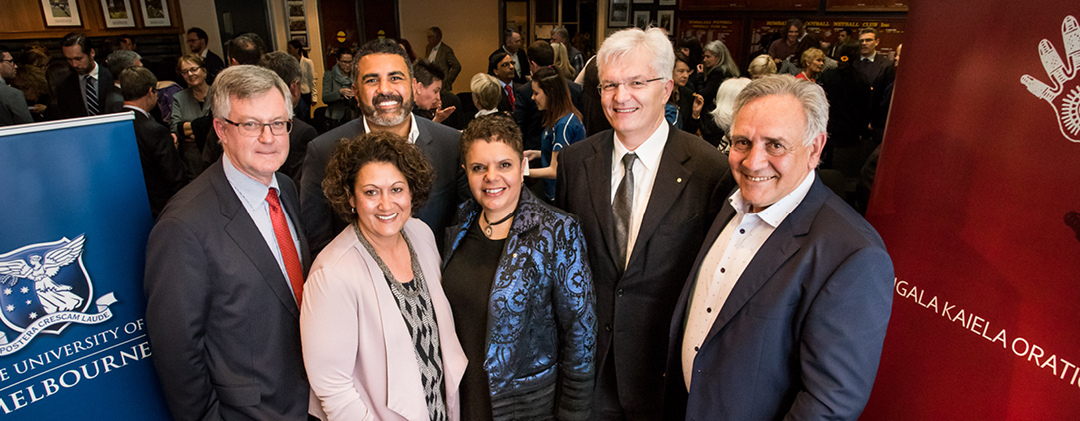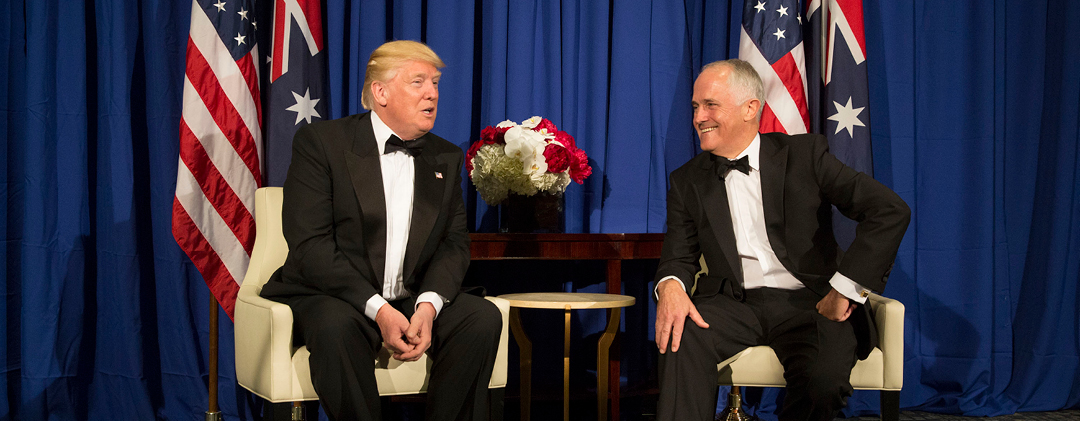The federal election on 2 July 2016 ensured the Department was kept busy with its core purpose of supporting and advising the government.
This year we have progressed the government's reform agenda. Women's economic security and safety from violence was a key focus. In October, the Office for Women supported the Prime Minister and the Minister for Women at the inaugural Council of Australian Governments (COAG) National Summit in Brisbane. This two-day meeting brought new stakeholders together—particularly those from the corporate world—to discuss ways to address gender-based violence. The national summit marked the launch of the Third Action Plan to Reduce Violence against Women and their Children. This is the next instalment of the long-term commitment to change attitudes to, and tolerance of, violence against women and children.
Improving the lives of Aboriginal and Torres Strait Islander people also remained a focus. In February, the Prime Minister delivered the ninth Closing the Gap report to Parliament that revealed mixed levels of success against the targets. In the words of the Prime Minister, 'we have come a long way in Indigenous affairs but not far enough', and he instructed the Department to work with the Indigenous Advisory Council to refresh the Closing the Gap agenda. The Australian Government's role in this review is being led by Professor Ian Anderson AO, the recently appointed Deputy Secretary, Indigenous Affairs Group. Professor Anderson has an exceptional reputation and standing in the community and I look forward to working closely with him on this important issue.
Following an Australian National Audit Office (ANAO) audit of the Indigenous Advancement Strategy, it was clear that more evidence-based knowledge of Indigenous affairs was needed to understand what works for whom and why. As a result, the government announced funding of $52.9 million for a new program to implement whole-of-government research and evaluation of policies and programs affecting Aboriginal and Torres Strait Islander peoples. This program provides greater transparency and allows longer term planning. The program complements efficiency improvements already made in delivering Indigenous-related programs. Indeed, the ANAO report highlighted stakeholder support and our job is to take the strategy into a mature phase of implementation.
We also began trialling better ways to influence outcomes for Aboriginal and Torres Strait Islander peoples, including implementing the Indigenous-led Empowered Communities model. This supports the Prime Minister's call for government to defer to Indigenous communities and elders who are best positioned to find solutions to local problems.
The anniversaries of three significant milestones in Australia's reconciliation history fell this year; 50 years since the 1967 Referendum, 25 years since the handing down of the historic Mabo Decision and 20 years since the Bringing them Home report. These anniversaries were a time to reflect on how far Australia has come in reconciling and celebrating Indigenous heritage as well as its progress as a nation.
The Department consolidated the government's agenda for security and opportunity for all. On the domestic policy front, we facilitated new investments in defence and energy security and infrastructure. We also supported the government's city planning agenda. A significant achievement was the delivery of the Townsville City Deal in December 2016 and the Launceston City Deal in April 2017.
The Prime Minister had a busy international agenda during 2016–17. The Department advised government on a large number of issues, most significantly the United States Refugee Resettlement Deal and the Defence White Paper as well as whole-of-community responses to counter-terrorism.
This year the Department facilitated bilateral visits to the United States, New Zealand, Papua New Guinea, Afghanistan, the United Arab Emirates, Iraq, India and Singapore where the Prime Minister delivered the keynote address at the Shangri-La Dialogue. The Department also supported the Prime Minister's attendance at the Asia-Pacific Economic Cooperation Leaders' Summit in Peru, the Pacific Islands Forum in Micronesia, the United Nations General Assembly Leaders' Week in the United States, the Indian Ocean Rim Association Leaders' Summit in Indonesia, the East Asia Summit and the ASEAN-Australia Biennial Summit in Laos and the G20 Summit in China. The Department also assisted with incoming visits to Australia from heads and deputy heads of state from the United States, China, Japan, Vietnam, the Netherlands, Sri Lanka, Malaysia, Afghanistan, Israel, Singapore, Indonesia and Nauru.
Cyber security and implementing the government's Cyber Security Strategy was another priority for the Department. PM&C worked with agencies to develop a whole-of-government response to the challenges. In February 2017, the Joint Cyber Security Centre opened in Brisbane. In addition, the industry-led Australian Cyber Security Growth Network that supports the cyber security industry commenced in December 2016. Other key government cyber security appointments were also finalised.

The Department's Behavioural Economics Team continued the application of behavioural insights to program and policy design. The team leveraged its relationships with the United Kingdom and the United States to make advancements in reducing recruitment bias and improving tax compliance, energy efficiency and retirement planning.
There were two COAG meetings during 2016–17. These were the culmination of many months of careful planning and behind-the-scenes work between PM&C and other government agencies.
The last year also saw the addition of new taskforces and units to respond to emerging priorities and challenges:
- The ASEAN Taskforce - formed in December 2016 to provide logistics and policy support to the government as it prepares to host the ASEAN-Australia Special Summit in March 2018.
- The Data Availability and Use Taskforce - established in February 2017 to respond to the Productivity Commission's inquiry and improve how Australia uses and shares data.
- The Strategic Coordination Unit - formed in September 2016 to help plan and monitor delivery of government priorities and assist the Prime Minister to manage parliamentary business.
- The Indigenous Affairs Group Business Transformation Office – established in November 2016 to work in partnership with the Department's corporate business areas and across Indigenous Affairs Group Divisions to lift staff and system capability and improve business processes.
- The Per- and Poly-fluoroalkyl substances Taskforce - set up in January 2017 to oversee and coordinate the whole-of-government response to per- and poly-fluoroalkyl substances contamination at Commonwealth-owned sites.
- The Infrastructure and Projects Financing Agency Transition team - tasked with establishing the Infrastructure and Projects Financing Agency, as announced in the 2017–18 Budget.

Shifting to PM&C internal operations, the Department has taken the first of many important steps to become an organisation that embraces change as part and parcel of a modern work environment.
We are building a more diverse, collaborative, technologically aware, digitally enabled, data driven, flexible, agile and innovative workforce. The completion of important internal reviews and trials of new ways of working are helping PM&C remain an exemplar in the way we work and in the comprehensive quality of our advice.
This year we adopted a new diversity and inclusion agenda and new approaches to recruitment to ensure the Department attracts and retains the people it needs. Recommendations of the 2015 Internal Red Tape Review have been implemented and we have trialled flexible working arrangements.
This transformation agenda has delivered a live briefing platform that can profoundly change the way we work, not just within PM&C but across the Australian Public Service and perhaps beyond. Our motivation is the Prime Minister's reputation as an early adopter of technology. The Department's new digital-first capability allows the Prime Minister to receive briefs and information and process advice in real time. This significant shift in mindset towards a digital-first approach has staff keen to adapt the system to other business needs. The digital-first approach has revolutionised how we reach out to the public. This year we have also taken significant steps to expand our digital engagement and social media footprints.
A new enterprise agreement covering PM&C staff was agreed and provides greater consistency of working conditions and pay across the Department. Our executive has also committed to doing things differently and what was formerly the Executive Leadership Group is now the Executive Board. The Deputy Secretaries are taking the lead on specific initiatives as part of the Department's 100 to 1000 Day Plan. These changes ensure PM&C remains as effective as possible as we deliver our core purpose.
Every year is different for PM&C and 2016–17 proved that point. The operating environment of the Department is affected by a number of moving parts and this year those parts moved quickly. We deal with the ever-shifting expectations of the Australian public to unpredictable trends in international politics. I am continually impressed by the professionalism of staff and the way in which they respond to these challenges and capitalise on opportunities.
I have been struck by the enthusiasm for innovation throughout the Department and the embrace of my message that disruption is not limited to the private sector. I hope to report back on the leaps and bounds we have taken on our transformation journey in next year's report. I look forward to leading a vibrant department that advances the interests of the government and the Australian people over the year ahead.
Dr Martin Parkinson AC PSM
Secretary
